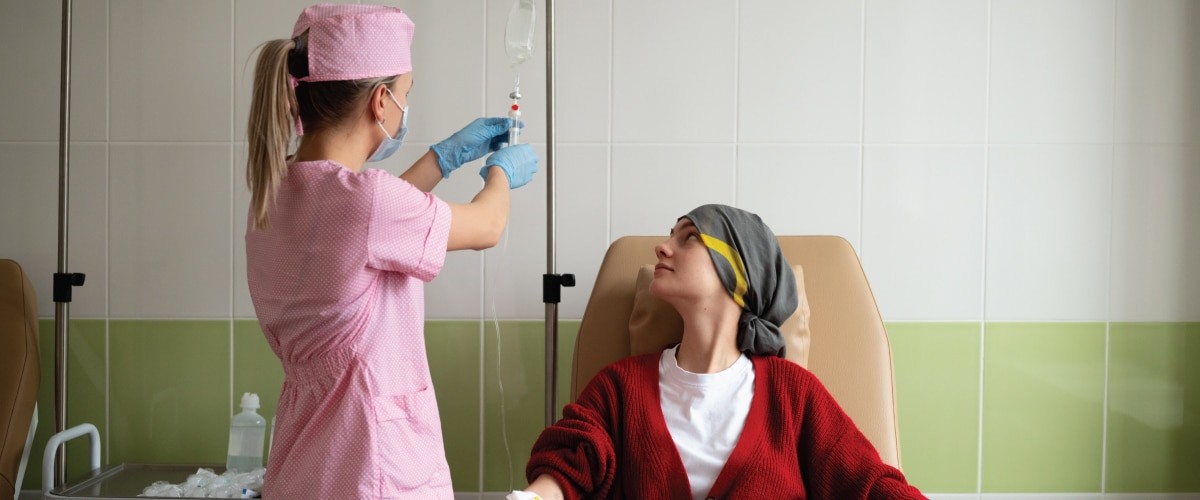
Understanding Chemotherapy: A Guide to Cancer Treatment
Cancer is a life-altering diagnosis that affects millions of people worldwide. While the journey can be daunting, advancements in medical treatments, particularly chemotherapy, have provided hope and improved outcomes for many patients. Chemotherapy, a cornerstone of cancer treatment, involves the use of powerful drugs to target and destroy rapidly dividing cancer cells in the body.
This comprehensive guide aims to demystify the complexities of chemotherapy, empowering patients, caregivers, and their loved ones with a deeper understanding of this critical treatment modality.
Within these pages, you will find invaluable information on the mechanisms of action, different types of chemotherapy agents, and their potential side effects. We will explore the chemotherapy, types of chemotherapy, chemotherapy process, side effects of chemotherapy, that may arise during treatment.
What is Chemotherapy?
Chemotherapy is a powerful form of cancer treatment that employs potent chemical compounds, known as anti-cancer drugs, as part of a carefully designed regimen. Its primary objective is to eradicate or impede the rapid and uncontrolled growth of malignant cells, which exhibit a higher rate of division compared to normal cells.
These medications are administered systematically, allowing them to circulate throughout the body and effectively target cancer cells that have metastasized or spread from their original site.
Chemotherapy plays a crucial role in combating cancers that have disseminated to various regions, making it an invaluable therapeutic approach in the fight against this formidable disease.
Types of Chemotherapy
Chemotherapy encompasses a diverse array of therapeutic agents, each meticulously designed to combat various forms and stages of cancer. While some chemotherapeutic drugs exert a broad spectrum of activity, others are tailored to target specific sites or cell types. The major classes of chemotherapy drugs include:
Alkylating Agents: These potent compounds disrupt the growth of cancer cells by directly binding to and damaging their DNA, rendering them incapable of cellular division and proliferation.
Antimetabolites: By mimicking the normal building blocks of RNA and DNA, these drugs infiltrate and interfere with the synthesis of these vital nucleic acids, thereby impeding the growth and replication of cancer cells.
Anti-Tumor Antibiotics: Through a sophisticated mechanism, these drugs induce structural modifications within the DNA of cancer cells, effectively preventing their unchecked growth and division.
Topoisomerase Inhibitors: Targeting a specific group of enzymes called topoisomerases, these agents hinder the process of DNA strand separation, a critical step in the replication of genetic material and subsequent cell division.
Mitotic Inhibitors: By disrupting the intricate machinery involved in protein synthesis, a process essential for cellular reproduction, these drugs precisely target and eliminate rapidly dividing cancer cells.
This diverse arsenal of chemotherapeutic agents exemplifies the multifaceted approach employed in the battle against cancer, with each class of drugs contributing its unique mode of action to combat this formidable disease.
How Chemotherapy Works?
Targets rapidly dividing cells, which is a characteristic feature of cancer cells.
- However, it also affects healthy cells that divide quickly, leading to side effects.
- The timing and dosages of chemotherapy are determined by:
- The type of cancer being treated.
- The goal of the treatment (curative or palliative).
- How the patient’s body responds to the chemotherapy drugs.
- Chemotherapy drugs disrupt the growth and division of cancer cells through various mechanisms, such as:
- Damaging the cell’s DNA, preventing it from replicating.
- Interfering with the synthesis of new DNA or RNA.
- Disrupting the formation of new proteins necessary for cell division.
- Inducing programmed cell death (apoptosis) in cancer cells.
- The treatment is typically administered in cycles, with periods of treatment followed by periods of rest, allowing healthy cells to recover.
- The dosage and schedule of chemotherapy are carefully calibrated to maximize the effectiveness against cancer cells while minimizing harm to normal, healthy cells.
Chemotherapy Process
-
- Targets rapidly dividing cells, a characteristic of cancer cells.
- Also affects some healthy cells that divide quickly, leading to side effects.
- Timing and dosages determined by:
- Type of cancer
- Goal of treatment (curative or palliative)
- Patient’s response to the drugs
- Mechanisms of action:
-
-
- Damaging cancer cell DNA to prevent replication.
- Interfering with DNA/RNA synthesis.
- Disrupting protein synthesis needed for cell division.
- Inducing programmed cell death (apoptosis) in cancer cells.
-
- Given in cycles:
-
-
- Periods of treatment
- Followed by rest periods to allow healthy cell recovery
-
- Dosing carefully calculated to:
-
- Maximize efficacy against cancer cells
- Minimize harm to normal, healthy cells
Side Effects of Chemotherapy
- Fatigue
- Nausea/vomiting
- Hair loss (alopecia)
- Bone marrow suppression (low blood counts)
- Mucositis (mouth/digestive tract inflammation)
- Neuropathy (nerve damage/pain/numbness)
Disclaimer: It’s important to note that the side effects of chemotherapy can vary significantly from person to person, and their severity can depend on various factors such as the type of chemotherapy drugs used, the dosage, the individual’s overall health, and their body’s response to the treatment.
4 Things to do during Chemotherapy
- Nutritional Fortification: Implement a proactive dietary plan that replenishes the body with vital nutrients, combats treatment-induced weakness and unintended weight fluctuations, and fosters an optimal environment for healing and recovery.
- Cultivating Emotional Resilience: Seek solace in professional counseling or supportive group settings, allowing you to process the immense emotional terrain with grace, while fostering a profound sense of solidarity and inner strength.
- Restorative Movement: In close consultation with healthcare providers, integrate gentle, purposeful exercises into your routine to enhance energy levels, alleviate treatment-related fatigue, and cultivate a profound sense of physical and mental well-being.
- Open Care Providers: Foster a collaborative partnership with your healthcare team by maintaining open and transparent communication about side effects and challenges experienced, enabling them to optimize symptom management and tailor your care plan effectively.
Conclusion
The chemotherapy journey is an immense undertaking, but it is one that countless individuals have navigated with incredible resilience and strength. By equipping yourself with a comprehensive understanding of this treatment modality, you take an empowered step towards being an active participant in your care.
Remember, you do not have to walk this path alone. Embrace the collective wisdom of your healthcare team, lean on the unwavering support of loved ones, and tap into the vast resources available to illuminate the way. Open communication about your experiences, concerns, and goals will enable your providers to optimally manage any side effects and tailor your treatment plan.
Although challenging, chemotherapy represents a powerful catalyst for cultivating profound personal growth, self-discovery, and a renewed appreciation for life itself. As you navigate the phases of treatment, nurture your mind, body, and spirit through mindful practices, restorative movement, and proper nourishment.
This guide is a steadfast companion, but you possess an inner fortitude that will be your ultimate source of strength. Trust in that resilience, and know that beyond the struggles lie innumerable moments of hope, healing, and triumph over adversity.
The chemotherapy experience is a testament to the indomitable human spirit and its capacity to emerge from even the darkest phases, imbued with a deeper reverence for life’s preciousness. Embrace this journey as a catalyst for profound transformation and unwavering perseverance.
Contact Us
Visiting Hours
OPEN 24 hours 7 days a week.
OPD Timings : Monday to Saturday
( 9:00 AM to 5:30 PM )
Appointments
Emergency
Visit the hospital
MGM Cancer Institute
No 119 & 121, Nelson Manickam Road, Raajeswari Street, Rajaram Mehta Nagar,
Aminjikarai, Chennai – 600029
At MGM Cancer Institute, we believe in curing the fear of cancer first. We understand that battling cancer is not just a physical fight, but a mental and emotional one as well. Our dedicated team is committed to providing exceptional healthcare that improves your overall well-being and eases the anxiety that comes with cancer. With a 150-bed facility in the heart of your city, we are here to support you every step of the way.















